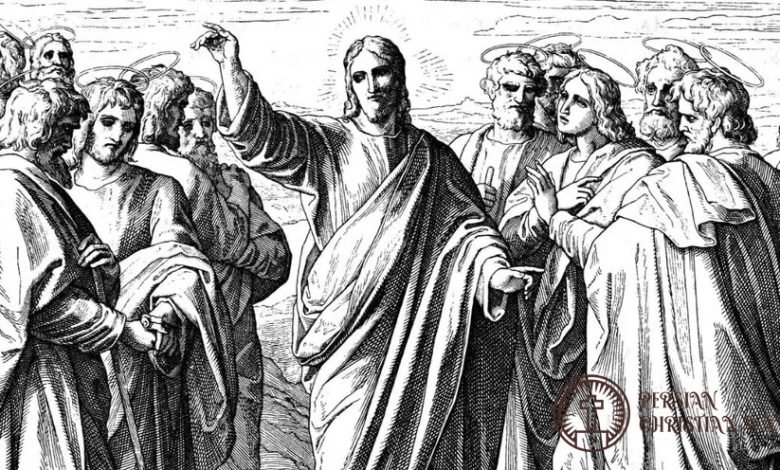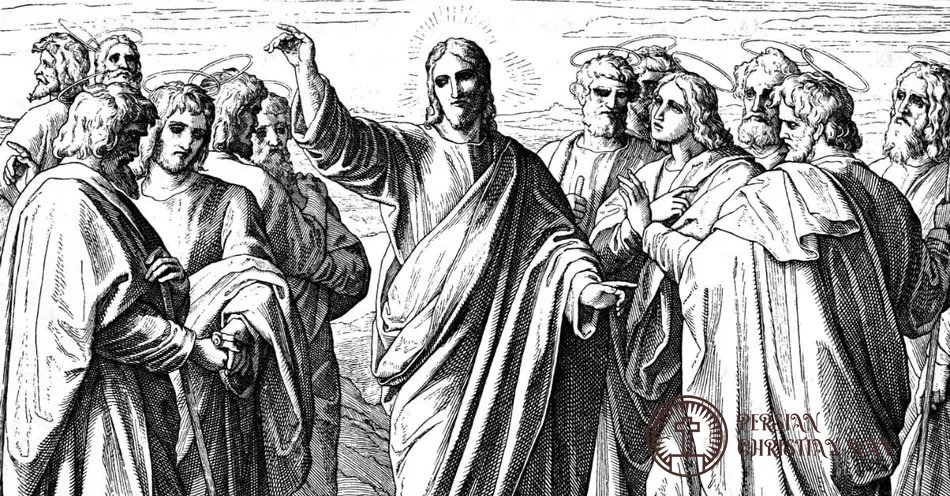
Jesus: Both God and Man?
Before there was a world, before there was a planet, before there was light, before there was matter, Jesus existed. Jesus was co-eternal, co-eternal, co-eternal with the Father and the Holy Spirit, with God – and He was God Himself. John 1:1-2 tells us, “In the beginning was the Word, and the Word was with God, and the Word was God. He was with God in the beginning.”
(Taken from the book “Fully God and Fully Human” by Harvest Ministries)
We cannot pinpoint the moment in time where there was a beginning, because John was going back into eternity past. He was returning beyond our imagination.
Jesus is God, and He left the safety of heaven. He entered our world and breathed our air and shared our pain and walked in our shoes. He was fully God and fully human. This does not mean that Christ had the ability to sin; This could not and would not happen. Yet he was human. He was in a human body. He experienced human emotions. He faced physical limitations. He felt real pain. It was real blood running through his veins. But he had divinity. He was God in human form.
Christ did not become one with us, but he identified himself with us. Indeed, he could not have identified himself more with us. As Hebrews 4:15 reminds us, “We do not have a high priest who cannot sympathize with our weaknesses, but was tempted in all things as we are, yet without sin.”
It was complete identification without losing his identity, because he became one of us without ceasing to be himself. He became human without ceasing to be God. Jesus left heaven, lived our life and died our death. He has walked in your shoes – and even beyond.
How can Jesus be both God and man?
One of the great mysteries of the universe is the incarnation of Jesus Christ. His full, complete and true humanity, as well as His genuine and true divinity. Perhaps you need to be God yourself to realize how the human nature and the divine nature are united in the person of Jesus Christ. But these two characteristics are both true according to the Bible.
It is clear from the accounts of the Gospels that Jesus was a real man. He was getting tired. He needed food. He endured the physical limitations of the body, and in particular, he surrendered his body to death and experienced a bloody death on the cross.
It is quite clear that Christ was a real man, but it is also clear from the testimony of the Bible and from what Christ said about himself that he is also truly God. He claimed to be the same God as the God of the Old Testament. He demanded and deserved worship as God, and now he has been elevated by God the Father to a position of rulership over the entire universe. To believe in Jesus really means to believe in His genuine humanity and His full and complete divinity. And both of these qualities are necessary for our salvation.
We need a savior who has become flesh and blood himself. The Bible says that Jesus had to become like us to save his brothers. And yet, to provide a perfect atonement for our sins, a precious sacrifice of infinite value, He also offered God’s own blood, in other words, a perfect sacrifice according to His divinity. Both of these qualities are necessary for our salvation. Both are biblical truths. This is a great mystery, but we must believe what the Bible says about the divinity and humanity of Jesus Christ.

What happens if we don’t believe that Jesus is both God and man?
Although today we struggle with various heresies rooted in the following, the early church had to deal with them head on. Many theologians were preoccupied with the concept of “Jesus as fully God and fully human,” so they often left (or downplayed) one of the two parts of the equation. This led to a number of heresies.
For example, if someone tried to diminish the humanity of Christ, he might have committed the heresy of “Docetism”. This heresy considered the flesh to be evil and said that Jesus “appeared in human form” but was not really human. There are also other similar heresies such as Apollinarianism (Jesus had a human body but a divine mind). Although there were other cases, these heresies troubled the church in the early centuries and were condemned.
If we remove Christ’s humanity, we devalue His sacrifice on the cross. If Jesus did not have a real body, or experience temptation in a human sense, then why should we care about his death and resurrection? At best, they are no more than illusions and do not solve the problem of sin.
Today in the article : Jesus: Both God and Man? We reviewed useful information about the Bible and the way of Jesus. If you wish, you can view other articles of Ali Vahidi about Christianity





